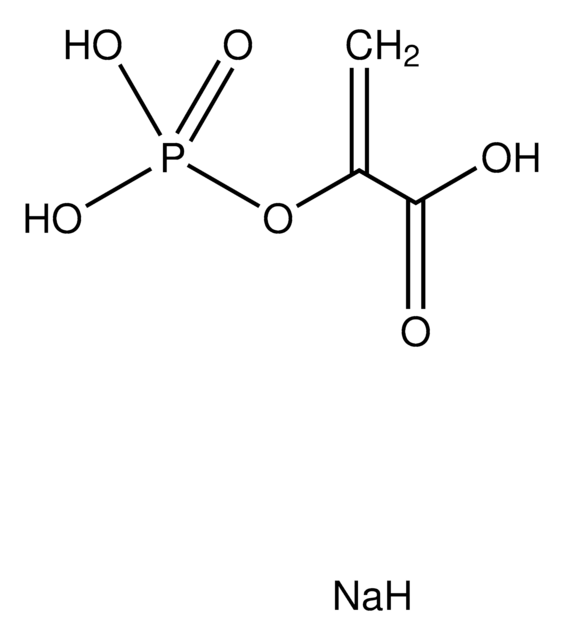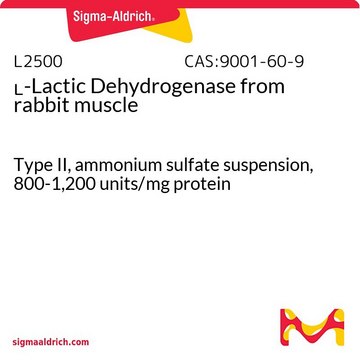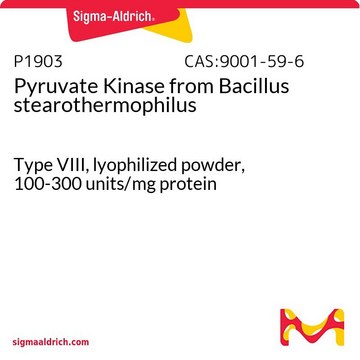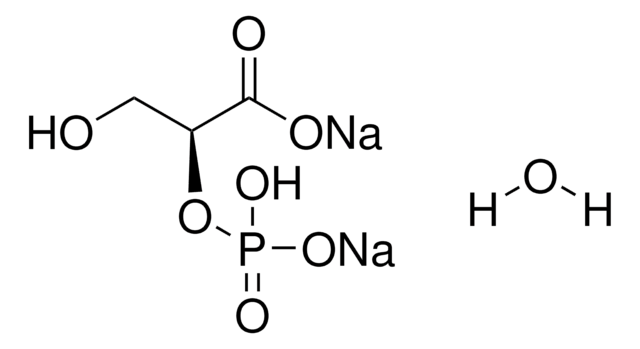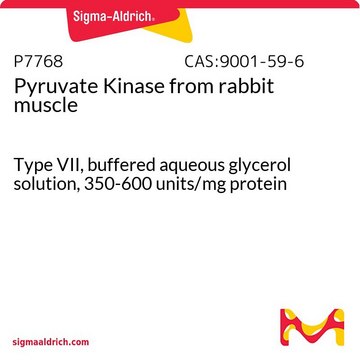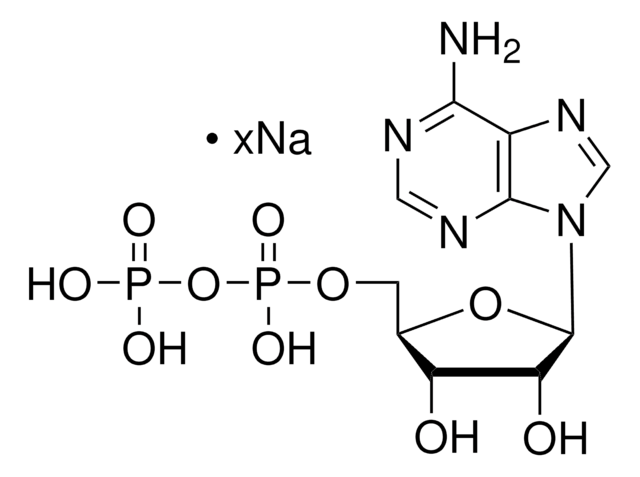P0564
Phospho(enol)pyruvic acid monosodium salt hydrate
≥97% (enzymatic)
Synonym(s):
2-(Phosphonooxy)-2-propenoic acid monosodium, mono-Sodium phosphoenolpyruvate hydrate, Monosodium phosphoenolpyruvate
About This Item
Recommended Products
Quality Level
Assay
≥97% (enzymatic)
form
powder
storage temp.
−20°C
SMILES string
O.[Na+].OC(=O)C(=C)OP(O)([O-])=O
InChI
1S/C3H5O6P.Na.H2O/c1-2(3(4)5)9-10(6,7)8;;/h1H2,(H,4,5)(H2,6,7,8);;1H2/q;+1;/p-1
InChI key
YEQQMAFLJISSCR-UHFFFAOYSA-M
Looking for similar products? Visit Product Comparison Guide
Related Categories
Biochem/physiol Actions
Storage Class Code
11 - Combustible Solids
WGK
WGK 3
Flash Point(F)
Not applicable
Flash Point(C)
Not applicable
Personal Protective Equipment
Choose from one of the most recent versions:
Already Own This Product?
Find documentation for the products that you have recently purchased in the Document Library.
Customers Also Viewed
Articles
Review the 10 steps of glycolysis in the Embden-Meyerhof-Parnas glycolytic pathway. Easily compare reaction stages and buy the enzymes for your life science research.
Our team of scientists has experience in all areas of research including Life Science, Material Science, Chemical Synthesis, Chromatography, Analytical and many others.
Contact Technical Service

